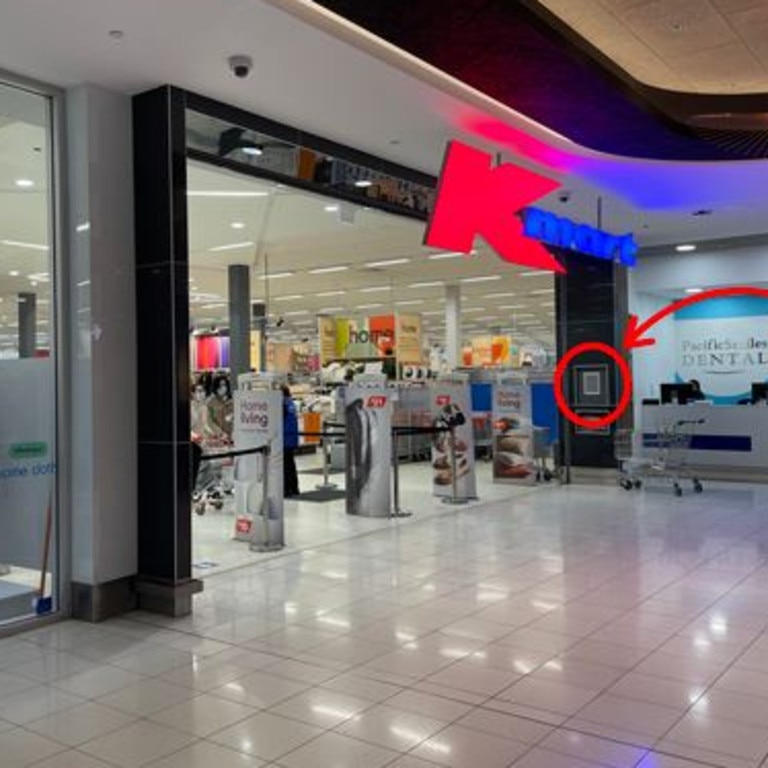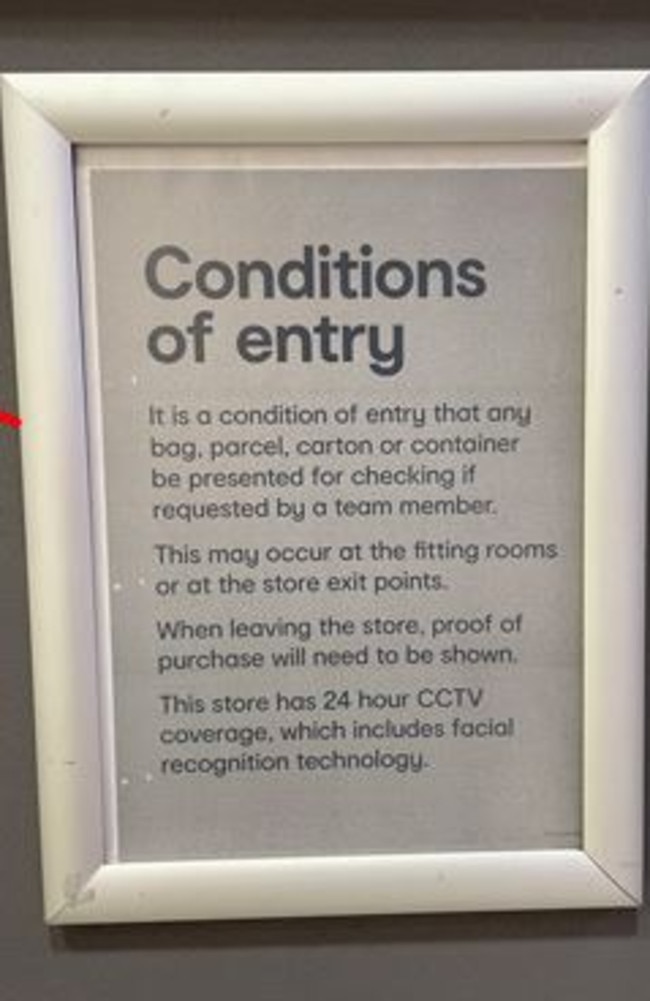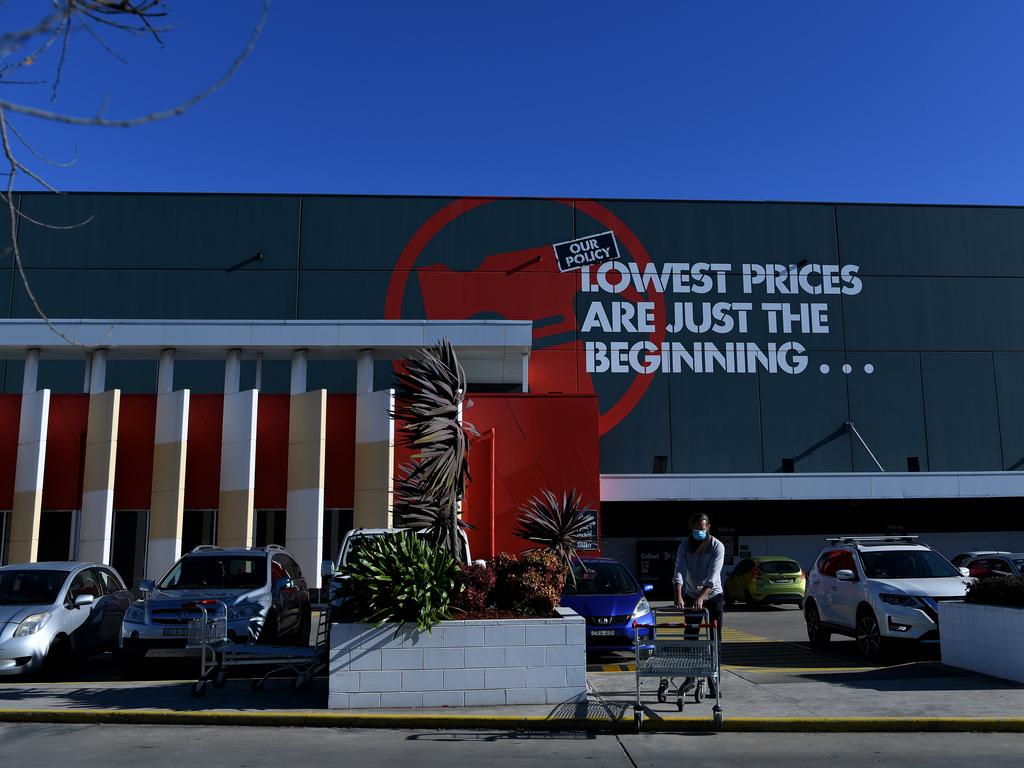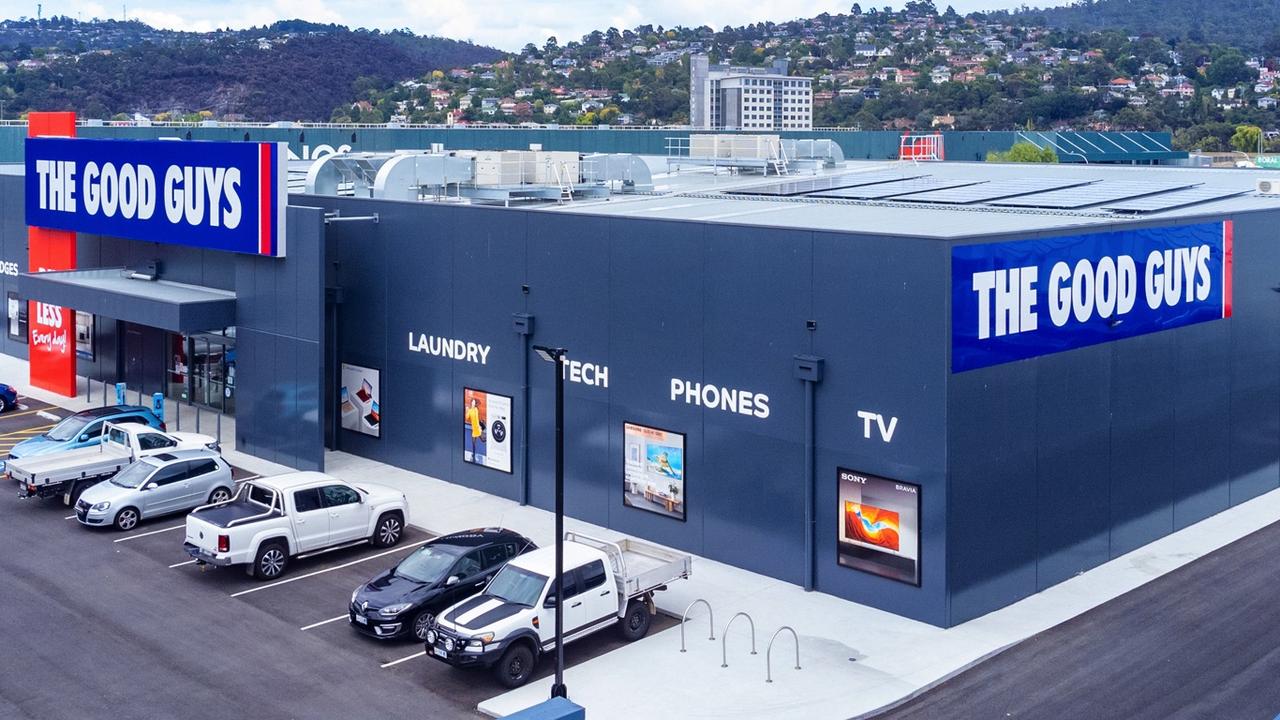Choice investigates Kmart, Bunnings, Good Guys facial recognition technology
There’s something that most of us miss when we go shopping – but now a consumer group is putting pressure on major retailers to make it clearer.
It’s a detail that most Aussie shoppers miss when entering some large shops. But now a leading consumer advocacy group is looking into the practice by some major retailers of using facial recognition on customers.
Choice has launched an investigation into some of the country’s biggest retailers which use the technology as customers enter stores.
Facial recognition analyses images from video cameras to capture each person’s unique facial features, known as a faceprint.
Choice has now asked 25 major retailers whether they use facial recognition technology and analysed their privacy policies.
Based on the responses received, Choice has claimed Kmart, Bunnings and The Good Guys appear to be the only three retailers capturing the biometric data of their customers.
Want a streaming service dedicated to news? Flash lets you stream 25+ news channels in 1 place. New to Flash? Try 1 month free. Offer ends 31 October, 2022 >

Choice’s research, which is based on a survey of 1034 Australian households, found 76 per cent of Australians aren’t aware retailers are capturing their unique facial features in this way – despite having a sign up at the front of stores.
Kmart, for example, has a ‘conditions of entry’ sign that reads: “It is a condition of entry that any bag, parcel, carton or container be presented for checking if required by a team member.
“This may occur at the fitting rooms or at the store exit points.
“When leaving the store, proof of purchase will need to be shown.
“This store has 24-hour CCTV coverage, which includes facial recognition technology.”

In Kmart’s privacy policy under “use and disclosure of personal information”, it states in the case of images from facial recognition software and body cameras, it is used for “loss prevention or store safety purposes”.
A Kmart spokesperson told news.com.au it is trialling facial recognition in a small number of stores “for the limited purposes of loss prevention (such as reducing refund fraud) and safety”.
“We are committed to keeping personal information private and protected in compliance with privacy law,” the spokesperson said.
“We make our customers aware of facial recognition through our conditions of entry signage in participating stores and in our Kmart privacy policy.”
Meanwhile, Bunnings chief operating officer, Simon McDowell said the retailer is “disappointed by Choice’s inaccurate characterisation of Bunnings’ use of facial recognition technology in selected stores”.
“This technology is used solely to keep team and customers safe and prevent unlawful activity in our stores, which is consistent with the Privacy Act.”
He said in recent years, there’s been an increase in the number of “challenging interactions” that teams have had to handle in stores.
“[And] this technology is an important tool in helping us to prevent repeat abuse and threatening behaviour towards our team and customers.”
Mr McDowell said there are strict controls around the use of the technology which can only be accessed by specially trained team.

The Good Guys is also trialling the use of a new CCTV system in two stores that can use face and feature recognition technology.
“This technology is used solely for the purposes of loss prevention and the safety of our store team members and customers,” a Good Guys spokesperson told news.com.au.
“We let our customers know the technology is in use in these two stores through our store entrance signage, and in our privacy policy that is available on our website.”
Choice consumer data advocate Kate Bower said the technology is capturing highly personal data from customers, including infants and children.
“Using facial recognition technology in this way is similar to Kmart, Bunnings or The Good Guys collecting your fingerprints or DNA every time you shop,” Ms Bower said.
“Businesses using invasive technologies to capture their customers’ sensitive biometric information is unethical and is a sure way to erode consumer trust.”
Mr McDowell said the technology at Bunnings is not used for marketing, consumer behaviour tracking, and images of children are never enrolled.
“We let customers know if the technology is in use through signage at our store entrances and also in our privacy policy, which is available via the homepage of our website,” he said.
News.com.au understands all CCTV footage at Bunnings is automatically destroyed after a period of time — normally around 30 days.

Survey results
Choice’s research revealed more than four in five (83 per cent) agreed retailers must properly inform customers about their use of facial recognition technology.
Nearly four in five (78 per cent) had concerns about how their biometric data was being stored and three in four (75 per cent) were concerned companies would use their data to create customer profiles for the purposes of marketing or profit.
Ms Bower said the advocacy group is referring the retailers to the Office of the Australian Information Commissioner (OAIC) to investigate potential breaches of the Privacy Act, and calling on the Federal Government to implement a modern regulatory framework that protects consumers from harmful and unfair practices.
“Choice is concerned that Australian businesses are using facial recognition technology on consumers before Australians have had their say on its use in our community,” Ms Bower said.
“With the Government currently undergoing a review of the Privacy Act, now is the perfect time to strengthen measures around the capture and use of consumer data, including biometric data.”
Facebook ended its use of face recognition technology last year, citing “concerns about the place of facial recognition technology in society”.






